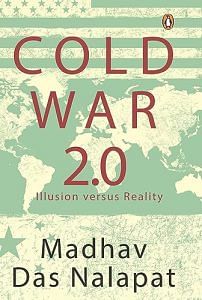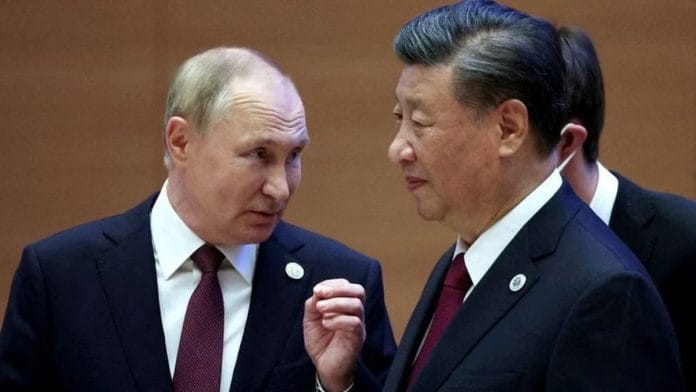Vladimir Putin took charge as the President of the Russian Federation in 1999 and had begun to understand by the close of 2003 that there was no likelihood of Russia being welcomed into the ‘common European family’.
Such an integration had been the quest of CPSU General Secretary Mikhail S. Gorbachev, and expectations of such a ‘homecoming’ lingered in the St Petersburg school of strategic thinking in the Russian Federation, unlike the more Eurasian-oriented Moscow school.
Subsequently, accepting that Russia had been and would remain a target of NATO and hostile commercial and diplomatic measures by the Atlantic Alliance powers, Putin, from 2006, took steps to shore up the defences of his country, including through intervening to prevent the creation of another hostile frontier in the east of Ukraine including through the recovery of Crimea, a territory that had earlier not been part of Ukraine but which had been transferred to it by an order of the presidium of the Soviet Union in 1954.
Had Crimea become a NATO base in the manner sought by prominent Ukrainian politicians, the security of Putinist Russia would have been severely compromised. In 2014, Putin in effect detached the Donbass and Luhansk from Ukraine, thereby creating a buffer zone to the east, just in case Ukraine joined hands with NATO. Such measures resulted in Atlantic Alliance partners placing additional sanctions on Russia. Measures that were designed to shrink the economy and thereby increase pain for the public in the expectation that this would result in turmoil on the streets as had been witnessed in parts of the Middle East and Europe earlier in this century.
It was not unexpected that such punitive measures would steer Russia more into China’s way, but the Atlanticist calculation was that economic enervation, and the resultant social unrest would prevent Moscow from being as potent a force multiplier as its potential entitled it to be. The problem is that Putin has not been showing signs of the Brezhnev Gorbachev syndrome of abstaining from kinetic attacks on allies of the Atlantic powers that was demonstrated in the absence of any retaliation on Pakistan despite GHQ Rawalpindi acting as the force multiplier for the fighters battling the occupying Russian forces in Afghanistan.
As the dynamics of international relations shift, the China-Russia partnership continues to evolve, raising questions about the implications for global geopolitics.
Also read: US is feeling the Russia-China heat. And its ‘wish list’ for India is only getting longer
Should this understanding of Putin’s difference with his predecessors not dawn, the risk to the Baltic states from a Russian invasion would be real. It is not only Ukraine that is in the sights of Russia under Putin.
Will the half loaf offered by the PRC continue to satisfy the Russian bear? It will as long as there is nothing better on offer. Several of Moscow’s interests diverge from those of Beijing, and yet geopolitical compulsions are impelling the Kremlin to frame policies that mesh closely with the interests of the PRC in a manner less than ideal where the interests of the Russian Federation are involved.
Changes in policy by the members of the Atlantic Alliance, in particular, would be needed to ensure that Moscow’s dependence on Beijing diminish. As with the path of North Korea and since the scrapping of the JCPOA of Iran towards a nuclear weapon, soon it may become impossible to ensure what ought to be regarded as a necessity in the era of Cold War 2.0. This is to break the pairing between Russia and China, which alas, seems destined to endure.

This excerpt from ‘Cold War 2.0: Illusion versus Reality’ written by Madhav Das Nalapat has been published with publisher Penguin India’s permission.






